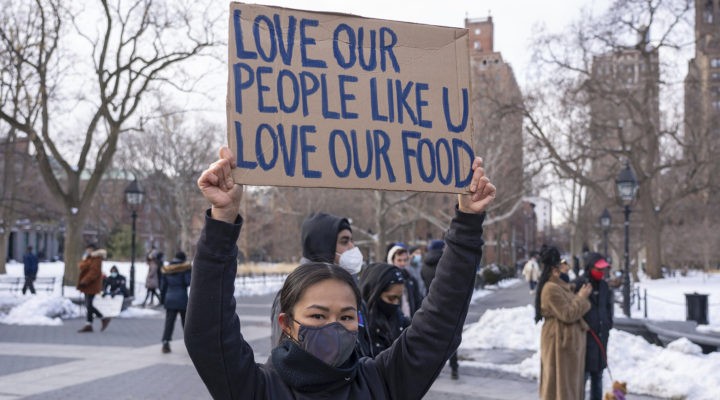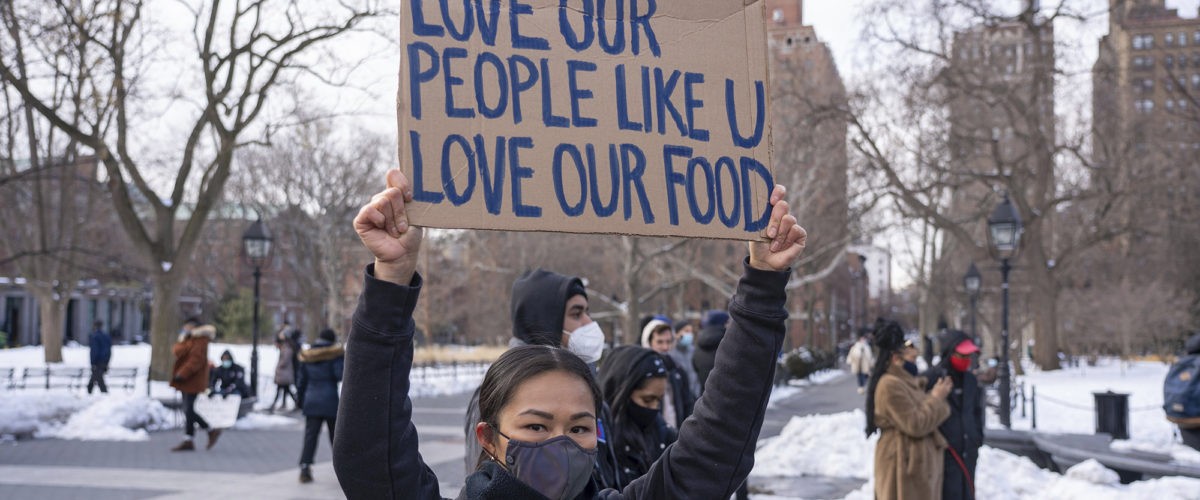Like any other American institution whose roots date back to the Revolutionary era, The United Methodist Church suffers from endemic institutional racism. Last year, leaders of the worldwide denomination declared their intention to focus on “dismantling racism” both within and beyond the church in the wake of the killings of Ahmaud Arbery, Breonna Taylor and especially George Floyd.
Now the denomination faces a new challenge from the documented increase of violence against Asians, Asian Americans and Pacific Islanders, referenced by a new acronym, AAPI.
Officially, The United Methodist Church is on record opposing all forms of racism. Article V of the denomination’s constitution states: “The United Methodist Church recognizes that the sin of racism has been destructive to its unity throughout its history. Racism continues to cause painful division and marginalization. The United Methodist Church shall confront and seek to eliminate racism, whether in organizations or in individuals, in every facet of its life and in society at large.”
Officially, The United Methodist Church is on record opposing all forms of racism.
Racial overtones in one of two recent mass shootings have heightened concerns about expanding the UMC’s Dismantling Racism Initiative begun in June 2020 to put more emphasis on resisting anti-AAPI racism.
Among the responses in a United Methodist News article, “Church Leaders Decry Attacks Against Asians,” reporter Sam Hodges notes: “Just a day before the Atlanta area killings, the Asian American Language Ministry Plan and the New Federation of Asian American United Methodists released a statement condemning the rise of anti-Asian violence in the U.S.”
The statement cites recent statistics on anti-Asian violence:
- “More than 122 incidents of anti-Asian American hate crimes have been committed in 16 of the country’s most populous cities since 2020, an increase of almost 150% over the previous year.
- “According to Stop AAPI Hate, 2,800 incidents of racism and discrimination targeting Asian Americans have occurred since March 2020.
- “Russell Jeung, the chair of the Asian-American Studies Department at San Francisco State University and one of the leaders of Stop AAPI Hate, said that, according to the organization’s data, people 60 and older were disproportionately targeted with physical violence, as were women. In New York City, violence against Asian Americans has risen by 1,900% in 2020.”
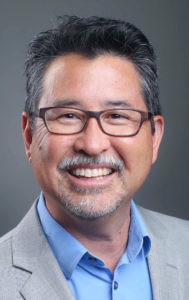
John Oda
Hodges quoted John Oda, director of the UMC’s Asian American Language Ministry Plan: “The United Methodist Church has a moral obligation to be vocally and visibly outraged at these shootings and this precipitous rise in violence and hatred against the Asian American community.”
Wisconsin Bishop Hee-Soo Jung, a Korean-American, told Hodges: “Fear is rising. It’s not an easy time for racial ethnic communities. Our Christian community needs to work hard to educate for harmony and peaceful living together.”
Among other responses, the UMC’s official monitoring agency, the General Commission on Religion and Race, issued a statement condemning the rise in anti-AAPI violence: “Racism and violence against Asian Americans is a growing crisis. (The commission) stands with our Asian siblings facing anti-Asian racism and violence, and we will continue to work to confront implicit biases and dismantle racism however we can.”
In the aftermath of the Atlanta spa shootings, individual United Methodists have expressed personal apprehension about AAPI prejudice.
California-Pacific Area Bishop Grant J. Hagiya, a third-generation Japanese American, reported he was accosted recently during his daily run by a white man who began yelling at him for no apparent reason. “This is the kind of thing we worry about because it could easily escalate,” Hagiya said.
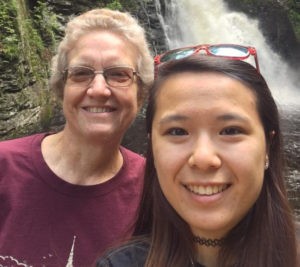
Mei-Ling Blackstone and her mother, Carlin Blackstone
An Eastern Pennsylvania Conference young adult leader, Mei-Ling Blackstone, told conference communicator John W. Coleman that she now posts reports of attacks on Asians on her Facebook account to raise people’s awareness of AAPI hate. She said she also takes greater personal security precautions: “I have become much more aware of my surroundings. I cannot hide the fact that I am Asian, but it is very rare when I go out without someone with me. In some ways, being an adopted Asian American can be beneficial because I am safer when I am seen with my (white) family instead of when I am alone.”
Also in Coleman’s article, Doris Dalton, director of leadership development and intercultural competence for the New York Annual Conference, identified the complexity now facing the UMC’s Dismantling Racism initiative. Coleman wrote: “As racist attacks against Black, Muslim and Latino Americans are reported, if abuse of Asian Americans is minimized, ‘then what we’re telling them is “Your story, your pain doesn’t matter.”’”
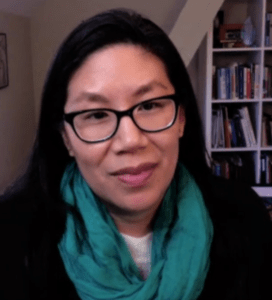
Doris Dalton
“It’s disheartening if we as people of faith do not rise up and say this is wrong,” Dalton said. “We need to meet this moment and speak about it, just as we rise up to speak about racism against Black people.”
Some United Methodist bishops are urging their constituents to take specific actions against AAPI racism.
Indiana Bishop Julius C. Trimble encouraged United Methodists in his area to build relationships with Asians and Pacific Islanders: “This is a critical time to reach out to those we know who may feel especially vulnerable and unsafe and assure them that we will not remain silent or ignore their stories of pain and demands for justice.”
Phoenix Area Bishop Robert T. Hoshibata, like Hagiya a third-generation Japanese American, urged his Desert Southwest Conference clergy and members to take part in a program, The 21-Day Racial Equity Habit Building Challenge, sponsored by the region’s RACE coalition. Hoshibata said he will join other Asian clergy and laypeople to share their experiences of racism as part of Asian American and Pacific Islander Heritage Month in May.
Clearly motivation is rising among inclusive-minded United Methodists to stand against prejudice toward Asian Americans and Pacific Islanders. However, The United Methodist Church, which has split in the past because of prejudice against Blacks, has a racist heritage that will be hard to overcome.
With its 99% white demographic and its historic roots in the slaveholding, Jim Crow culture of the United States, the UMC bears a stain of white supremacy that some church members refuse to acknowledge. How the UMC can traverse new racial tensions while it simultaneously faces the likelihood of an institutional split will be cause for prayer and watchfulness for some time to come.
Cynthia B. Astle is a veteran journalist who has covered the worldwide United Methodist Church at all levels for more than 30 years. She serves as editor of United Methodist Insight, an online journal she founded in 2011.
Related articles:
In Atlanta, more denial of persistent racism
It was a bad week for women, but it wasn’t unusual | Opinion by Susan Shaw
Don’t let the Atlanta shooter off the hook by claiming women drove him to addiction | Opinion by Kaleb Graves
Racists don’t get to define racism | Opinion by Jakob Topper
Reflections on March 16 | Opinion by Elisabeth Sophia Lee

